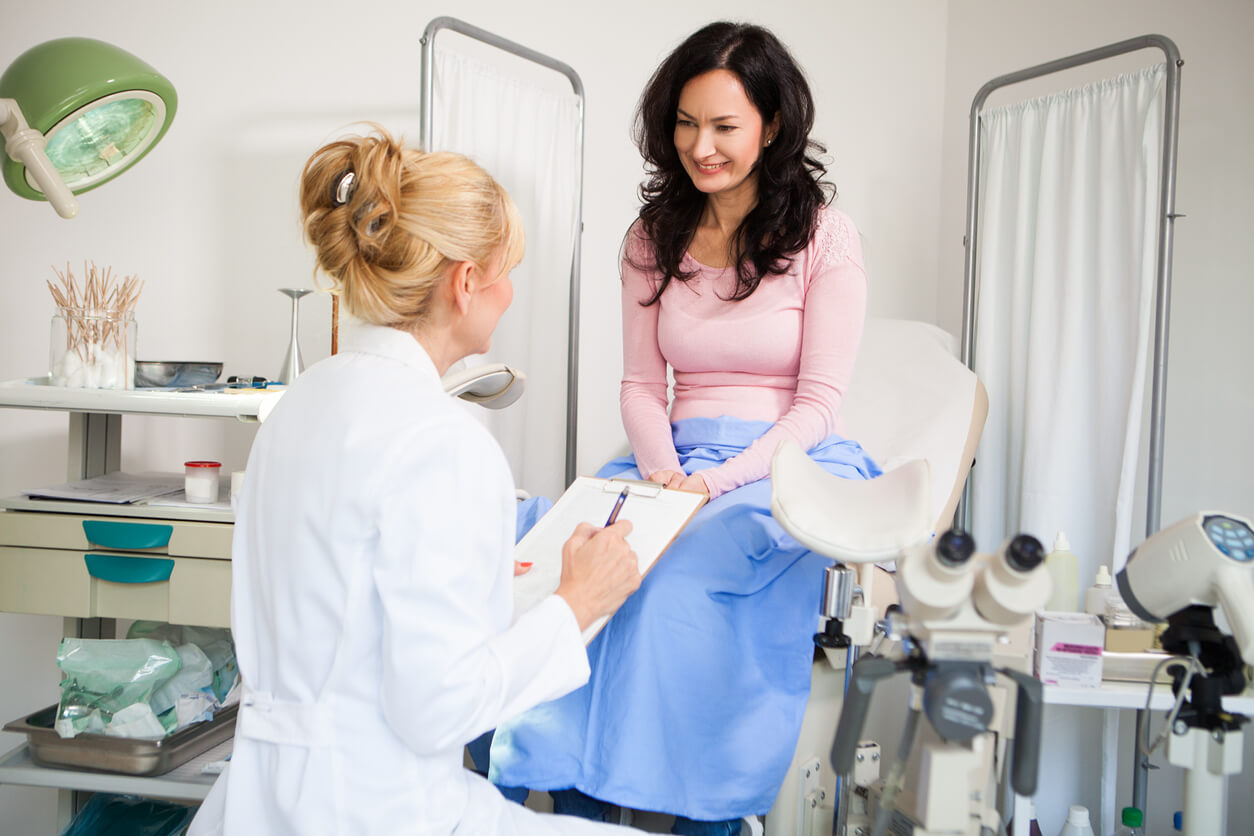As a female, your reproductive system plays a major role in many aspects of your life. From monthly menstrual cycles to pregnancy, to your day-to-day hormone levels, it is crucial that your reproductive health is maintained to keep your body functioning properly.
This month, in honor of I Am Woman: A Celebration of Womanhood, we are taking a look at just how important your reproductive health is as a female, and how to ensure it is prioritized through every stage of life.
The Female Reproductive System
Before learning how to care for your reproductive system, it is important to understand exactly what it is, and its functions. The female reproductive anatomy includes both external and internal elements. The external parts of the reproductive system are:
- Labia majora: The labia majora encloses and protects the other external reproductive organs.
- Labia minora: The labia minora are located just inside the labia majora, and surround the openings to the vagina and urethra.
- Bartholin’s glands: These glands are located next to the vaginal opening on each side and produce mucus.
- Clitoris: The labia minora meet at the clitoris, a small, sensitive protrusion that is covered by a fold of skin.
The internal parts of the reproductive system are:
- Vagina: The vagina is a canal that joins the cervix to the outside of the body.
- Uterus: The uterus is a hollow, pear-shaped organ that is divided into two parts: the cervix, which is the lower part that opens to the vagina, and the main part of the uterus, called the corpus.
- Ovaries: Ovaries are small, oval-shaped glands that are located on either side of the uterus and are responsible for producing eggs and hormones.
- Fallopian tubes: These are narrow tubes that are attached to the upper part of the uterus and serve as pathways for an egg to travel from the ovaries to the uterus.
All of these internal and external body parts work together to form a fully-functioning reproductive system. This system is responsible for producing eggs and hormones that give us a monthly period, facilitating childbirth, and maintaining a pregnancy.
Why is Reproductive Health Important?
The female reproductive system is powerful yet fragile at the same time. It is extremely susceptible to imbalances and infections that can affect your menstrual cycle and fertility if not properly taken care of.
Ensuring your reproductive health is in peak condition can improve your chances of getting pregnant and maintaining a safe pregnancy. Additionally, a reproductive system that is unhealthy can cause distress in day-to-day life, including pain and irritation, changes in mood from hormone imbalances, irregular menstrual cycles, acne, and more.
Tips for a Healthy Reproductive System
There are a number of steps that you can take in your daily life to care for your reproductive system and help maintain a healthy and properly functioning system.
-
- Go for regular checkups: Ensuring you have an experienced and prevention-focused OB/Gyn like Copperstate, that you can go to for regular screening and checkups including Pap Smears and infection testing is a great way to ensure your reproductive health is maintained and any issues are caught early.
- Maintain a healthy lifestyle: Eating a healthy diet, maintaining an appropriate body weight, and getting regular exercise and sleep may seem redundant, but are crucial to your reproductive health.
- Keep stress levels down: Stress can weaken your body’s immune system and leave you more susceptible to infections. Additionally, stress can also alter your normal menstrual cycle and cause hormonal imbalances that may result in issues. Avoiding stress when possible can greatly increase your reproductive health.
- Practice safe sex: Having safe sex is vital to preventing sexually transmitted infections, including HIV/Aids. Getting regular screenings and using preventative methods like condoms can help keep your reproductive system safe.
- Quit smoking: Studies have shown that smoking can compromise the ovaries, the uterus, and other areas of the female reproductive system.
- Increase calcium and magnesium intake: Calcium and magnesium can help alleviate symptoms that accompany a monthly menstrual cycle like fatigue, headaches, cravings, and depression.
- Go for regular checkups: Ensuring you have an experienced and prevention-focused OB/Gyn like Copperstate, that you can go to for regular screening and checkups including Pap Smears and infection testing is a great way to ensure your reproductive health is maintained and any issues are caught early.
Copperstate and Your Reproductive Health
When it comes to your reproductive health, Copperstate is here for you. Our practice is recognized as one of the most progressive OB/Gyn groups in Southern Arizona. We offer numerous services focused on helping you achieve optimal reproductive health such as:
- Contraceptive and Natural Family Planning
- Annual Well Women Exams
- Obstetrical and Gynecological Ultrasounds
- Individualized Obstetrical Care
I Am Woman: A Celebration of Womanhood
In March 1992, Dr. Karen Addis and her husband Dr. Walt Patton opened Copperstate OB/GYN, a premier women’s healthcare facility focused on providing exceptional reproductive healthcare to women of all ages, and through every stage of life. This year we are celebrating 30 years of female empowerment with I Am Woman: A Celebration of Womanhood. In addition to our monthly blog posts, we’ll be hosting Facebook Live sessions and giveaways each month in our Facebook group, Tucson Women: Healthy Living, that will celebrate womanhood and test followers’ knowledge!
Are you looking for an OB/Gyn you can trust to help you achieve optimal reproductive health in the Tucson area? Let us support you in achieving true health and wellness. Call (520) 721-8605 to book your appointment today.
Sources
https://my.clevelandclinic.org/health/articles/9118-female-reproductive-system
https://www.niehs.nih.gov/health/topics/conditions/repro-health/index.cfm
https://fresnoobgyn.com/blog/tips-for-a-healthy-female-reproductive-system/

